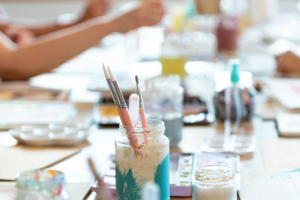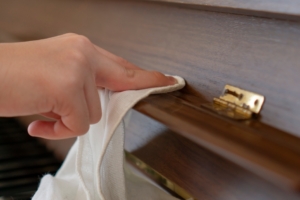4 Gentle Ways To Help a Loved One Who Hoards

Hoarding is a complex and often misunderstood behavior that can have significant emotional and physical implications. If you have a loved one struggling with hoarding, you might feel overwhelmed and unsure of how to help. Continue reading for some gentle ways to help a loved one who hoards.
Approach With Empathy
When discussing hoarding behavior with your loved one, approaching the conversation with empathy and understanding is crucial. Start by expressing your concern for their well-being and emphasize that your intention is to support them—not judge them.
Use “I” statements to share your observations without sounding accusatory. For example, “I’ve noticed the living room is very cluttered, and I’m worried it might be unsafe.” It’s important to listen actively and acknowledge their feelings and fears.
Hoarding often stems from deep-seated emotional pain, so being compassionate can help them feel understood and less defensive. Avoid forcing them to change or making ultimatums, as this can lead to resistance and further entrenchment in hoarding behaviors.
Offer Practical Help
Rather than immediately attempting to declutter their space, offer practical assistance in a way that respects their attachment to their belongings. Start with small, manageable tasks, such as organizing a single drawer or sorting through a pile of newspapers.
Highlight the safety hazards associated with hoarded environments, such as fire risks or tripping hazards, to provide a gentle incentive for change. Suggest creating a designated space for cherished items, which can help your loved one feel less overwhelmed by the process. Encourage breaks and be patient; this process requires time and can be emotionally taxing. Celebrating small victories along the way can motivate them to continue.
Encourage Professional Support
While your support is invaluable, professional help is often necessary to address the underlying issues associated with hoarding. Gently encourage your loved one to seek assistance from a mental health professional who specializes in hoarding disorders.
Therapy can provide them with coping strategies, help them understand the root causes of their behavior, and guide them through the decluttering process. You might also suggest joining a support group, where they can connect with others facing similar challenges. Providing resources, such as contact information for local therapists or support groups, can make it easier for them to take the first step.
Provide Patience and Understanding
Supporting a loved one who hoards requires ongoing patience and understanding. Progress may be slow, and there may be setbacks along the way. Continue to offer your support, celebrate their successes, and remind them that change is a gradual process. Your encouragement can make a significant difference in their willingness to seek help and make lasting changes.
With these gentle ways to help a loved one who hoards in mind, you can help them take steps toward a safer and more organized life.





